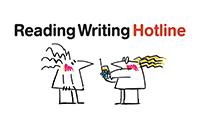Help with Grammar, Punctuation, and Spelling
Strong grammar, punctuation and spelling skills create a good impression and help to communicate clearly. Unfortunately, there is no really easy road to good spelling and good grammar; you need to work on it. But we are here to help and it can be really rewarding too!
Many people complain about the apparent inconsistencies in English spelling patterns. This is because English is drawn from a number of other languages and contains words that were originally Latin, Greek, and Germanic, and the spelling ‘rules’ are different in each of those source languages. This makes the English language a rich and interesting one, in spite of the apparent difficulties.
Tips to improve spelling:
- Get into the habit of writing (even just for yourself), and ‘having a go’ at the spelling of difficult words.
- List words you are having trouble spelling, and learn the important ones.
- Learn a few important rules ( e.g. ‘I before e, except after c’).
- Learn commonly misspelt words. There are a number of lists of these in adult spelling books and websites.
- Find out the origins of words.
- Break down words into chunks or ‘bits’.
- Sound out words. This does work for some words that have regular spelling patterns.
Ask for help to find a course or website or a book that will help you revisit some of the things that you learned at school, and things that you either weren’t taught or can’t remember from school.
You might need to look up the correct way to use punctuation marks such as:
- Commas
- Colons
- Semi-colons
- Apostrophes
- Capital letters and full-stops
You might need advice on learning to construct sentences and paragraphs, and on how to use the appropriate grammar for whatever you are writing. Or you might want to find a whole course on improving your writing skills.
For more information on courses to help with grammar, punctuation and spelling, or for help in finding on-line resources, contact Reading Writing Hotline on 1300 6 555 06.


